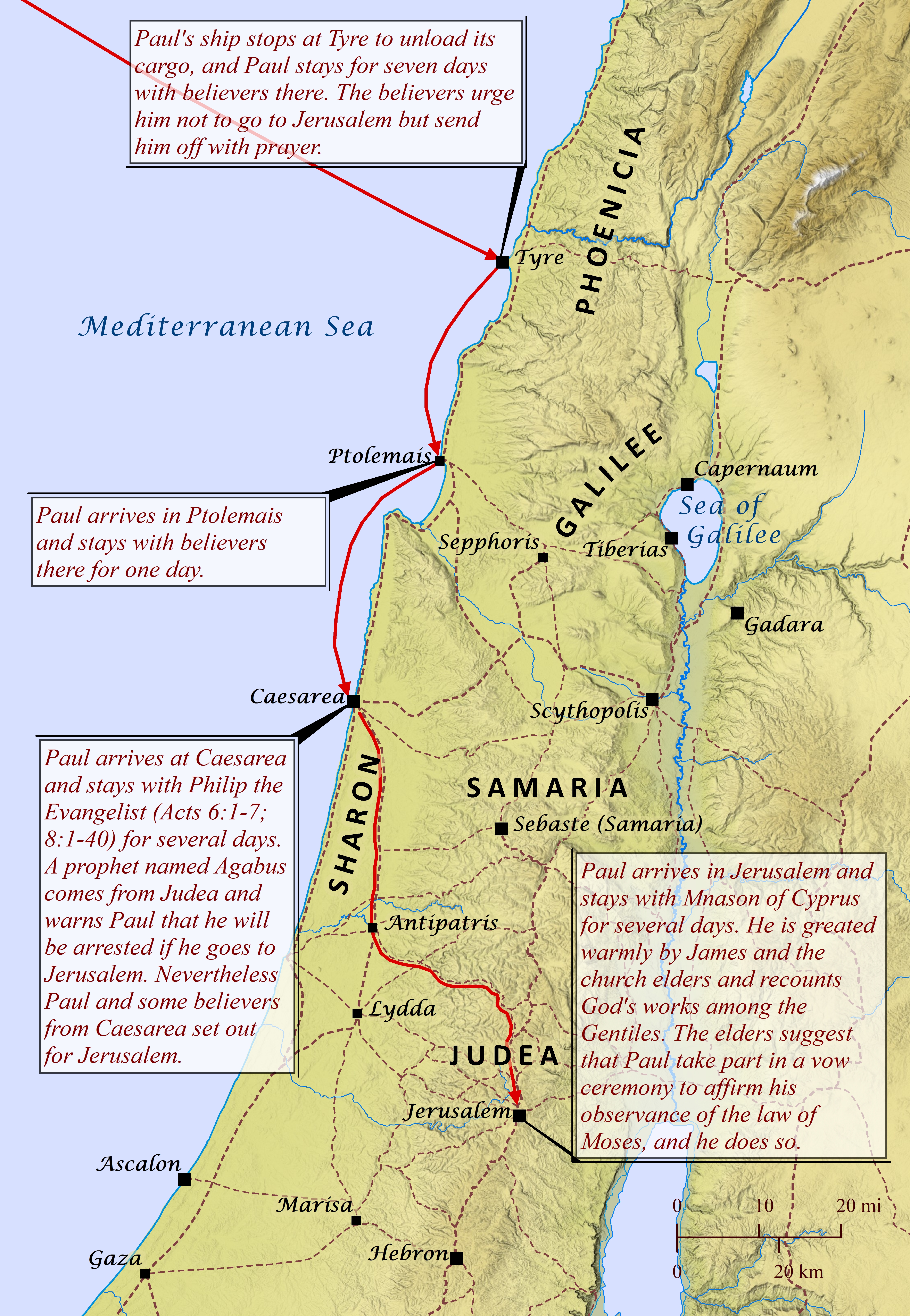Readers’ Version
Literal Version
21:17 Paul visits Yacob and makes a vow
17 When we arrived at Yerushalem, the brothers and sisters there happily welcomed us, 18 and the next day, we accompanied Paul to go and see Yacob[fn] and the elders of the assembly there. 19 After greeting them, Paul then described all the things that God had done among the non-Jews as he had served among them, 20 and when they’d heard all that they praised God and told Paul, “Brother, you’ve noticed how many thousands of Jews have believed in the messiah but they still strive to observe Mosheh’s laws. 21 But they’ve heard reports that you’ve been teaching the Jews that live outside our country that they don’t have to obey what Mosheh wrote—telling them that they don’t have to have their children circumcised and that they don’t have to follow our Jewish customs. 22 What will happen now, because the leaders here will certainly hear that you have arrived? 23 So here’s what we suggest that you do: Four of our men are making a public vow. 24 Why don’t you join these four and join them in the purification ceremony at the temple and pay their expenses in getting your heads shaved. Then everyone will be able to see that it’s false what they’ve heard about you, because you clearly still comply with Mosheh’s instructions. 25 And as for the believers who are non-Jews, we’ve informed them of our recommendation that they should avoid anything that’s been offered to an idol, avoid consuming blood and meat from strangled animals and birds, and avoid sexual immorality.”
26 So the next day Paul took the four men for the purification ceremony in the temple and there they announced the date when their vows would be fulfilled and their sacrifices made.
21:18 Yacob is commonly (but wrongly) called James in most older English Bibles.
18 and on_the day following, the Paulos was_entering with us to Yakōbos/(Yaˊₐqoⱱ), and all the elders arrived.
19 And having_greeted them, he_was_explaining by each one, of_what the god did among the pagans by the service of_him.
20 And they having_heard were_glorifying the god, and they_said to_him:
You_are_observing, brother, how_many tens_of_thousands are among the Youdaiōns which having_believed, and they_are_ all _being zealous for_the law.
21 And they_were_instructed concerning you, that you_are_teaching apostasy from Mōsaʸs/(Mosheh) all Youdaiōns the ones among the pagans, saying them not to_be_circumcising their children, nor to_be_walking in_the customs.
22 Therefore what is_it?
Certainly they_will_be_hearing that you_have_come.
23 Therefore do this, what we_are_saying to_you.
Four Men are with_us, having a_vow for themselves.
24 Having_taken these men, be_purified with them and spend for them, in_order_that they_will_be_shaving his head, and all will_be_knowing that of_which they_have_been_instructed about you nothing is, but you_are_aligning also yourself, keeping the law.
25 But concerning the pagans having_believed, we sent_out having_judged them to_be_keeping, from_the and/both idol_sacrificed thing, and blood, and strangled animals, and sexual_immorality.
26 Then the Paulos having_taken the men, on_the following day with them having_been_purified, was_entering into the temple, proclaiming the fulfillment of_the days of_the purification, until of_which the offering was_offered for each one of_them.

